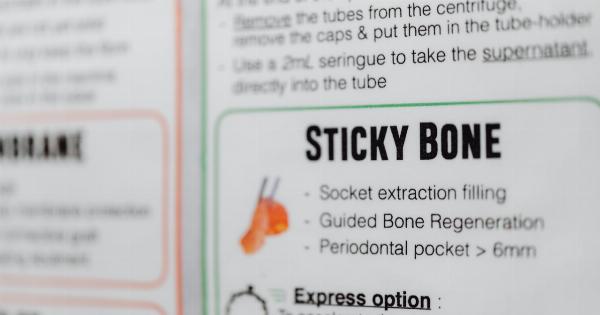Pregnancy is one of the most beautiful experiences that can happen to a woman, but it can cause significant changes to your body that may take some time to adjust to.
The female body undergoes a tremendous amount of stress, hormone changes, physical changes, and emotional changes during the nine months of pregnancy and the months following the birth of the baby. In this article, we will discuss the different ways your body changes after pregnancy.
Weight Gain During Pregnancy
It’s normal and healthy for women to gain weight during pregnancy. However, the amount of weight gained varies from woman to woman. On average, women gain around 25-35 pounds during pregnancy.
The weight gained during pregnancy is made up of the weight of the baby, the placenta, amniotic fluid, and increased fluid, fat stores, and blood volume. Gaining weight during pregnancy is natural and expected but losing it can be difficult. It’s essential to adopt a healthy diet and exercise routine to help with post-pregnancy weight loss.
Changes in Your Breasts
During pregnancy, your breasts will get bigger and heavier as the milk ducts and milk-producing cells grow. The changes in your breasts can begin as early as the first few weeks of pregnancy.
By the end of the third trimester, your breasts will have grown significantly to prepare for breastfeeding. After delivery, whether you choose to breastfeed or not, your breasts will get engorged as the milk comes in. Your nipples may also become sore and cracked due to breastfeeding or pumping.
If you’re not nursing, your breasts will return to their pre-pregnancy size, but you may experience sagging due to the change in breast tissue.
Stretch Marks
Stretch marks are scars that form on the skin when it stretches rapidly, as it does during pregnancy. The rapid growth of the uterus and weight gain can cause stretch marks to appear on the belly, hips, thighs, and breasts.
Many women find the appearance of stretch marks difficult to deal with, but they do fade over time. You can also help minimize the appearance of stretch marks with creams and oils that help keep the skin hydrated.
Changes in Your Stomach
During pregnancy, the uterus stretches to accommodate the growing baby. As the uterus expands, the abdominal muscles and skin stretch and may become weakened.
After giving birth, you may be left with a protruding belly commonly referred to as a “mummy tummy.” This condition occurs when the abdominal muscles do not return to their pre-pregnancy state. Fortunately, there are exercises you can do to help strengthen your core and reduce the appearance of the mummy tummy.
Hair Changes
During pregnancy, many women experience thicker, shinier hair due to hormonal changes that cause hair to stay in the growth phase longer than usual. After giving birth, your hair may begin to fall out as hair growth returns to its pre-pregnancy rate.
This can be alarming, but it’s a normal and temporary condition. Your hair will return to its usual thickness and texture in a few months.
Changes in Your Vagina
Many women experience changes in their vagina after pregnancy. During childbirth, the vaginal canal stretches to accommodate the baby’s passage. As a result, it may feel less tight or more open than before.
Women who deliver vaginally may also experience soreness and swelling around the vaginal area. It’s important to take care of the vaginal area post-pregnancy with appropriate hygiene and kegel exercises that help strengthen the pelvic floor muscles.
Changes in Your Skin
Pregnancy can cause several skin changes in women that include acne, skin darkening, and skin tags. Due to hormonal changes, many women experience acne during pregnancy.
It’s important to maintain good skin hygiene and avoid harsh chemicals and products that could cause more harm than good. Skin darkening can also occur during pregnancy, and it’s usually a temporary condition that returns to normal after delivery. Skin tags also are common during pregnancy, and they typically disappear after childbirth.
Changes in Your Mood
Postpartum depression is a common mental health condition that affects many women after childbirth. Hormonal changes, sleep deprivation, and stress are some factors that could contribute to the development of postpartum depression.
The symptoms can range from mild to severe and can affect a woman’s quality of life. It’s essential to seek medical attention if you suspect you have postpartum depression.
Changes in Your Sleep Patterns
Sleep is crucial for post-pregnancy recovery, but many women find it difficult to get enough rest due to the demands of taking care of a newborn. Hormonal changes and stress can also affect sleep patterns, making it harder to fall asleep or stay asleep.
It’s essential to ask for help and take turns with your partner or family member to take care of the baby.
Conclusion
Pregnancy is a beautiful journey, but it can cause significant changes to your body that can be difficult to adapt to.
It’s essential to adopt healthy habits such as eating a nutritious diet, exercising regularly, and getting enough sleep to help your body recover after childbirth. Keep in mind that the changes you experience are temporary, and with time, your body will return to its pre-pregnancy state.





























